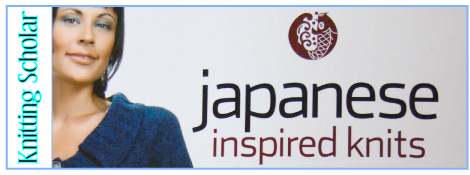This is a beautifully photographed book, filled with twelve sweater designs–one for each month. Each chapter begins with photos and a paragraph or two about what makes that month special in Japan, or some traditional event that takes place … something that can be tied into the pattern that follows.
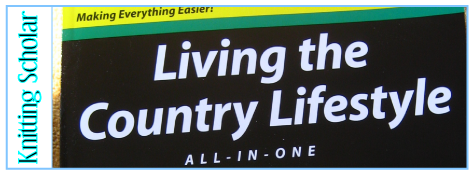
A lot of knitters and spinners do. We cherish the thought of growing our own vegetables, canning our own preserves, and surrounding ourselves with homemade quilts and blankets lovingly made by our own hands. All while (naturally) we sit and knit as we gaze from the porch at our happy flock of sheep, listening to our chickens clucking to themselves.
Or maybe we just dream of such a lifestyle and want to read about it without having to live it. Or maybe we really do want to live it, but realize how much work is involved and don’t know where to start.
Well, this book is a good place.
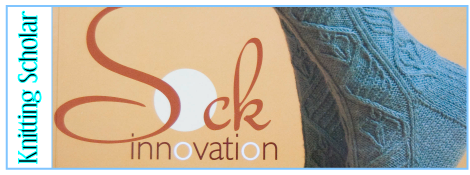
Have you ever wondered what you really needed to know to be able to design really fantastic socks? How to work in a stitch pattern, how to coordinate the placement of the heel, or the elasticity of the cuff? Maybe you’ve been looking for a nice, thorough guide to explain everything you need to know?
Or, maybe you’re not at all interested in designing socks, and you just want beautiful socks to knit. You want all the hard, thinking parts taken care of and just work off the sheer inspiration of meticulously crafted patterns.
Where, oh where, can you go to find all that?

I haven’t done one of these handy-dandy lists since December, so here are some of the new books coming up, as well as some of the recent ones that have come out in the last couple of months
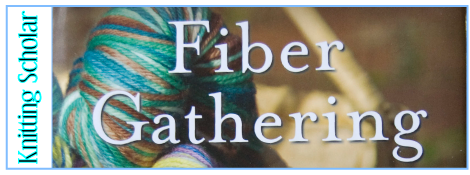
Well, welcome to Fiber Gatherings. This book is devoted to the idea of fiber festivals, specifically ones in the United States. Each chapter looks at one, specific festival and explores what makes it special, and different from all the others. But, more than just describing what makes each gathering unique, she looks at what makes them the same. In a good way.
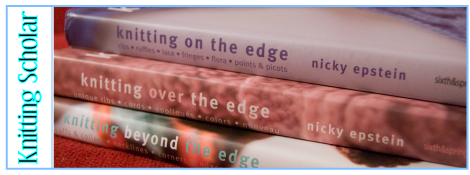
So, there I was, thinking about what kind of border I wanted to put on the afghan I was making. I had an idea in mind, but needed a stitch pattern, and since it was for an edge treatment, I automatically pulled all three of Nicky Epstein’s books off the shelves and sat down to flip through them. I didn’t even pause at the Barbara Walker collections, or any of the other stitch dictionaries. I went right for these.

Visiting today, we have Wendy D. Johnson from Wendy Knits. Let’s give her a warm, Knitting Scholar welcome, shall we? (sound of knitting needle applause) So, you’ve got a new book , Socks from the Toe Up, coming out, and I gather by the title that it’s about, well, socks? What made you decide to [...]
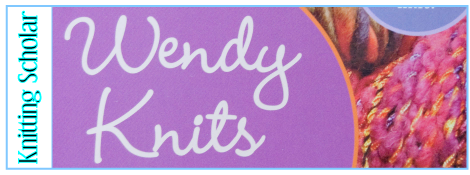
If you read her blog (and I recommend it), you already know Wendy’s tone of voice, and this book feels like a nice, long chat with her. Some of the details you may have picked up on her blog, but there’s a lot to be said for a nice, cohesive story … especially when interspersed with knitting patterns.
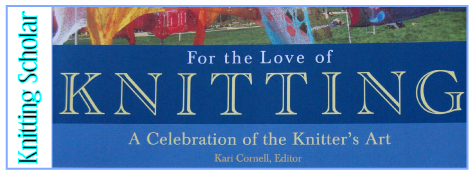
This book is described as “a scrapbook of stories, essays and memories that celebrates knitting and knitting heritage,” and it does a fine job of it. It’s pleasant and easy on the eyes, and a reminder of all the different things that make knitters knit. Creativity. Therapy. Relaxation. Necessity. It’s all in there. Kind of like just about any knitting circle you can think of.
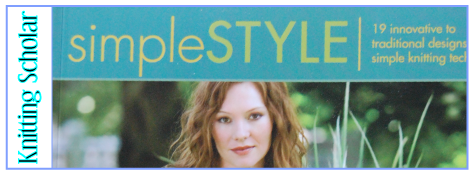
These designs stick to the basics, usually only having one real “design” element to each, but even those are subtle. They’re not fancy, elaborate design elements that make your eyes pop and your jaw drop … and that’s exactly the point. They’re elements that you don’t even see unless you’re looking, because they’re seamlessly integrated into the designs.
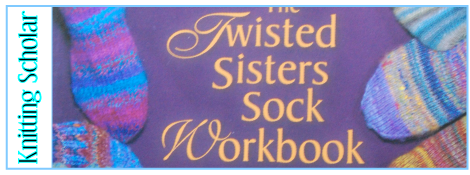
This is one of those kinds of books that almost makes you rethink everything you know about knitting.
It was written in 2002, at just about the time that sock knitting started becoming popular, and spinning hadn’t taken off. Seven years ago, most people who knit automatically headed to their local yarn shop or craft store to buy yarn–the concept of making their own was still new. (New to our generation, that is. Obviously, people have been spinning their own yarn for quite some time.)
Enter Lynne Vogel.

